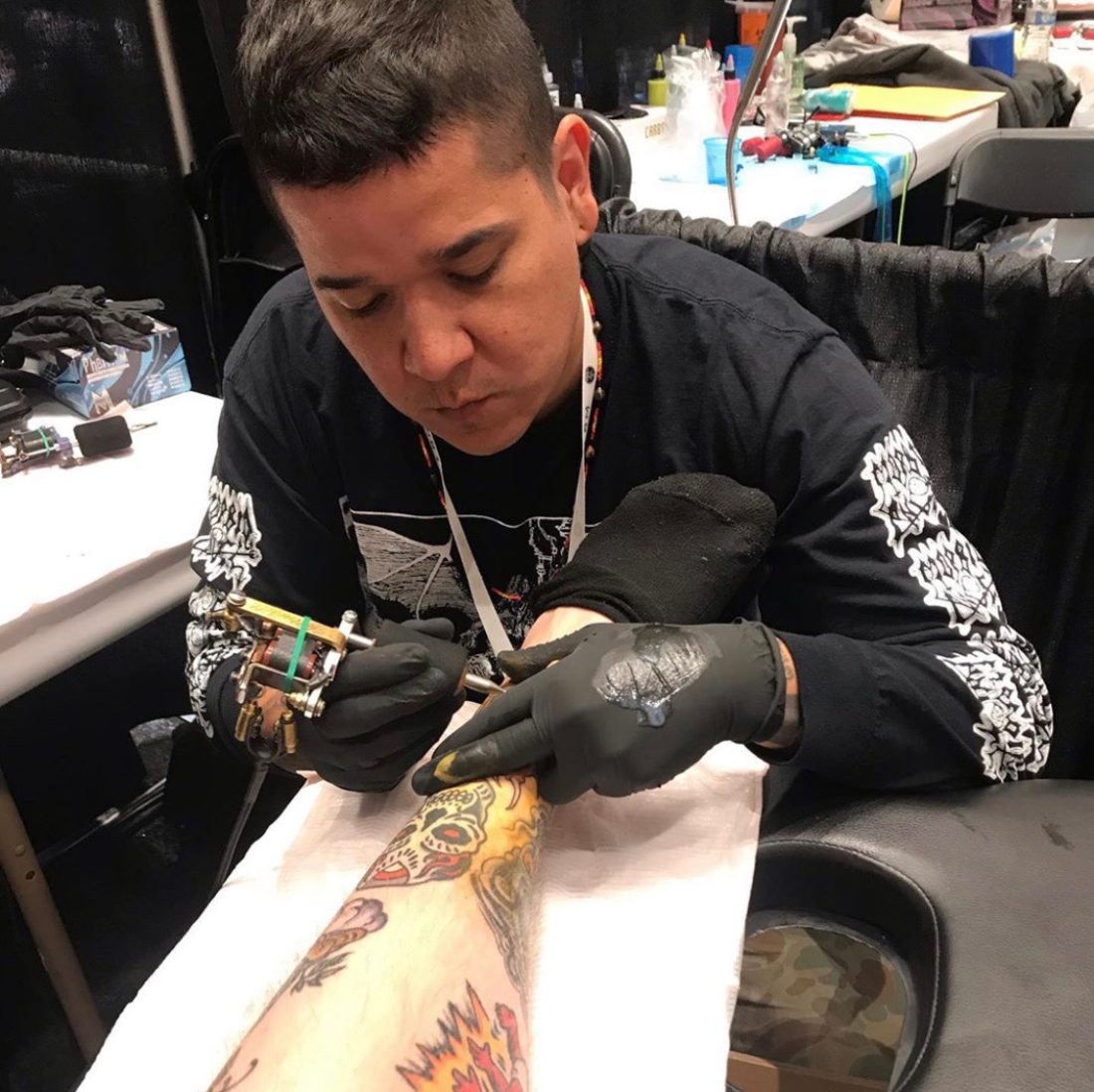In the tattoo industry, summertime can mean as much as a three-month wait for clients to get under the needle, says John Henry Gloyne, tattoo artist and co-owner of Serpent & the Rainbow Tattoo. But like most businesses, his parlor on Haywood Road temporarily closed in response to the coronavirus pandemic in late March. Fortunately, Gloyne says he and his business partner already had planned to relocate the shop to a new building in the South Slope, so the business restrictions made the transition relatively smooth. His new shop is expected to open July 1.
Gloyne, who’s spent 16 years in the industry, notes that reputable tattoo parlors had numerous safety precautions in place even before COVID-19. He says tattoo artists routinely wear gloves, use plastic covers over tattoo guns and cables and work with single-use supplies, such as needles. Surfaces are also cleaned after each appointment with MadaCide, a powerful disinfectant designed to kill viruses and bacteria, to protect both the artist and client.
“A good rule of thumb in tattooing is, and not to sound outlandish, but you want to treat every person you tattoo like they have HIV because that means that you’re going through every step to protect yourself,” Gloyne says.
Cleaning procedures won’t differ too much after his shop opens, but consultations and tattoo work will be by appointment-only, and both clients and tattoo artists will don masks while interacting.
Despite the safety measures, Gloyne, who is also a member of the Eastern Band of Cherokee Indians, says he worries about potentially exposing older family members to the disease. “I’m not particularly worried about myself,” says Gloyne, 36. “But being from Cherokee, our elders are very important to us. If the coronavirus got into the Cherokee elder population, that would be horrific.”
Interaction among people will become inevitable as more businesses begin opening in both Asheville and Cherokee, Gloyne says, but he’s hoping that residents and visitors will be considerate of each other in the months to come. “If people would use a lot of respect and common sense, I think a lot of this would be so much better,” he says. “That sounds real simple, but it’s so true.”
This article is part of COVID Conversations, a series of short features based on interviews with members of our community during the coronavirus pandemic in Western North Carolina. If you or someone you know has a unique story you think should be featured in a future issue of Xpress, please let us know at news@mountainx.com.




Before you comment
The comments section is here to provide a platform for civil dialogue on the issues we face together as a local community. Xpress is committed to offering this platform for all voices, but when the tone of the discussion gets nasty or strays off topic, we believe many people choose not to participate. Xpress editors are determined to moderate comments to ensure a constructive interchange is maintained. All comments judged not to be in keeping with the spirit of civil discourse will be removed and repeat violators will be banned. See here for our terms of service. Thank you for being part of this effort to promote respectful discussion.